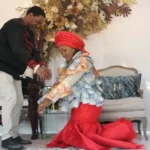HARARE – The Zimbabwean government is facing a major public relations crisis as it desperately attempts to legitimize the 2023 elections, which the Southern African Development Community (SADC) has declared as not free and fair.
The government’s efforts to spruce up Harare and host the 44th Ordinary SADC summit of heads of state are being overshadowed by a wave of arrests targeting tourists, civil society activists, and opposition figures, drawing widespread condemnation.
The SADC Electoral Observation Mission (SEOM) to the Zimbabwe general elections, in its final report issued a month and a half after the polls, confirmed glaring irregularities. The SEOM’s preliminary findings, which accused the government of “electoral intimidation,” sparked an uproar from Harare, which accused Zambia of harbouring a regime change agenda. Despite a spirited attack by Harare to discredit the SEOM and its head, Nevers Mumba, the final report maintained the initial condemnation of the way the elections were conducted.
Mumba, a former Zambian vice president, had acknowledged the peaceful and calm nature of the election, but also highlighted shortcomings in adherence to the Zimbabwean constitution, electoral act, and SADC principles and guidelines governing democratic elections.
The government’s actions, however, go beyond the elections. Czech national Lucas Slavik and Ugandan Tom Ssekamwa, tourists travelling together, were arrested on 1 August in Masvingo Province, about 300km south-east of Harare. Their arrest sparked international outrage.
Slavik was charged with spreading falsehoods through a recorded video, in which he described Zimbabwe’s dire economic situation, including long power and water cuts. Police overheard Slavik’s narration while attending to a car accident nearby and apprehended him.
Police officers then raided a backpackers lodge where Slavik was booked in and searched Ssekamwa’s bags, allegedly acting on a tip-off. The National Prosecuting Authority claimed the search revealed Ssekamwa had contravened the Censorship and Entertainment Act.
Slavik’s initial charge of “publishing falsehoods” was later changed to “publishing false statements with intention to incite the public.” The absurdity of the situation was highlighted when Knowledge Mabvure of the Chihambwakwe Law Chambers pointed out that Slavik was being charged under a law that had been struck off due to a power outage. This irony drew laughter from the court gallery.
Mabvure also argued that the existence of power and water cuts in Masvingo was a fact, not a falsehood. The government, ironically, had requested that the country’s power utility, ZESA, ensure uninterrupted electricity supply to selected venues to be used during the SADC gathering.
The arrests of Slavik and Ssekamwa are just the tip of the iceberg. Over 80 civil society and political activists are currently behind bars, following a series of arrests that began in July. This does not include the 44 student activists jailed on 24 July for an allegedly unlawful gathering.
The 44 students were forced to pay admission of guilt fines after police threatened to hold them for up to a month in custody, which would have meant they would be behind bars during the SADC summit.
Last year’s losing presidential candidate, Nelson Chamisa, lamented the situation, stating: “Being an active conscious citizen and being young has become a crime. The citizens, especially the young people, are persecuted for their beliefs and for wanting better lives.”
Last week, civil society activists Namatai Kwekeza, Samuel Gwenzi, Robson Chere, Promise Munkuli, and Vusimuzi Moyo were ejected from a domestic flight and arrested. They have since been charged with disorderly conduct for allegedly demonstrating outside the Rotten Row Magistrate’s Court in Harare, where 78 activists were due to appear.
Western embassies stationed in Harare have condemned the arbitrary arrests. The US Embassy said the arrests “run counter to the democratic principles upon which SADC is built.” The heads of mission of European Union countries stationed in Zimbabwe expressed deep concern and urged “authorities to uphold fundamental freedoms in line with the Zimbabwe Constitution and international human rights obligations, including on arrest, detention, and legal proceedings.”
The South African government coalition partner, the DA, has gone a step further, suggesting that the SADC summit should be moved from Zimbabwe due to human rights violations. The DA also called on SADC to hold the Zimbabwean government accountable.
“By abusing state machinery to violate the rights of Zimbabweans, the unrepentant ZANU-PF regime has demonstrated that it is prepared to go to any lengths to violate the law in order to entrench its authoritarian rule. South Africa, and by extension, SADC, have an obligation to hold the Zimbabwean government to account,” read a statement attributed to Emma Louise Powell, the DA’s spokesperson on international relations and cooperation.
Addressing a public lecture at Rhodes University in Makhanda, EFF leader Julius Malema urged young people in Zimbabwe to come together to bring an end to the country’s woes.












